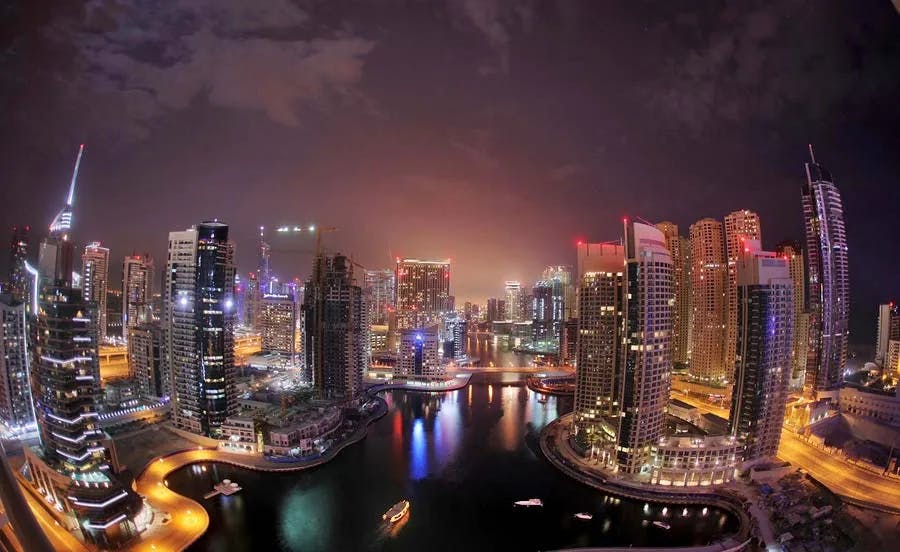The Requirements for a Dubai Residency Visa in 2024: What’s Changed?
The requirements for a Dubai residency visa have changed in 2024, with updates on financial thresholds, family sponsorship rules, and health insurance mandates. Stay informed on what’s new to ensure a smooth application or renewal process.

Dubai continues to be a popular destination for expats, investors, and business professionals looking to benefit from its thriving economy, tax efficiency, and luxurious lifestyle. The Dubai residency visa is the gateway to making this vibrant city your home. In 2024, there have been some changes and updates to the requirements for securing a Dubai residency visa. Whether you’re applying for the first time or renewing, it’s important to stay informed about the latest guidelines. In this article, we’ll break down the key changes in the Dubai residency visa process and what you need to know to successfully obtain or renew your visa.
Updated Financial Requirements
In 2024, there have been adjustments to the financial requirements for obtaining a Dubai residency visa. Depending on the type of visa you’re applying for—be it an investor visa, employment visa, or property investor visa—different financial thresholds must be met. For instance, individuals applying for an investor visa now need to show a higher minimum investment amount in a UAE-based company or property to qualify. This ensures that those coming to Dubai have sufficient financial backing to contribute to the economy.
For property investors, the minimum property value required to secure a Dubai residency visa has also increased. The property must now be worth at least AED 1 million (approx. USD 272,000) in freehold areas to qualify for a three-year visa.
Employment Visa Sponsorship Changes
If you’re applying for a Dubai residency visa through employment, your employer remains your sponsor. However, in 2024, there are some changes regarding company sponsorships. Companies are now required to ensure that they meet stricter criteria regarding employee salaries and contract lengths to sponsor foreign workers. Additionally, employees must have a minimum salary of AED 4,000 (approx. USD 1,090) per month to be eligible for an employment-based Dubai residency visa.
Newly introduced online portals make it easier for companies and employees to submit applications and track their visa status. This digital process aims to streamline visa approvals and reduce the paperwork traditionally associated with the process.
Golden Visa Expansion
The Dubai Golden Visa—a long-term residency option—has expanded its categories in 2024, offering more professionals and investors the chance to secure a 10-year visa. New qualifying categories now include more specialists, such as digital technology experts, entrepreneurs in tech startups, and certain high-net-worth individuals. If you meet these criteria, you may be eligible for a Golden Visa, which comes with additional benefits, including family sponsorship and reduced dependency on a local sponsor.
Health Insurance Requirement
A significant change for the Dubai residency visa process in 2024 is the mandatory health insurance requirement. Now, all visa applicants, including their dependents, must provide proof of valid health insurance coverage. The health insurance must meet specific criteria set by the UAE government, ensuring that residents have access to quality healthcare during their stay in Dubai. This requirement is crucial for all types of visas, including employment, investment, and family visas.
Changes to Family Sponsorship Rules
If you’re looking to sponsor family members for a Dubai residency visa, there are a few updated rules to keep in mind. In 2024, the minimum salary requirement to sponsor a spouse or children has been raised. Additionally, there is now a requirement for male dependents over the age of 18 to either be enrolled in higher education or employed to remain on their family’s visa.
Expats sponsoring their elderly parents must also meet stricter financial thresholds and prove their ability to provide adequate support for their parents, including accommodation and healthcare coverage.
Renewal Process Updates
For those renewing their Dubai residency visa in 2024, there are some changes to the renewal process. The renewal timeline has been shortened, meaning that expats must apply for renewal at least 30 days before their current visa expires to avoid fines. Additionally, the government has introduced new online services that allow individuals to renew their visas without needing to visit government offices, further simplifying the process.
Residency Visa Validity Periods
The validity periods of Dubai residency visas have also been adjusted in 2024. Investor visas now have a longer validity period of three to five years, depending on the size of the investment. Employment visas remain valid for two years, while the Golden Visa provides up to 10 years of residency. These extended visa terms offer greater stability and allow residents to plan their future in Dubai with more certainty.
Conclusion
The Dubai residency visa process has evolved in 2024, with new financial thresholds, expanded eligibility for the Golden Visa, and updates to family sponsorship and health insurance requirements. Staying informed about these changes is essential to successfully applying for or renewing your residency visa. Whether you’re an investor, business owner, or employee, Dubai’s flexible visa options make it an attractive destination for expats seeking long-term residency.
For personalized assistance with your Dubai residency visa application or renewal, contact us today to ensure a smooth and successful process.




